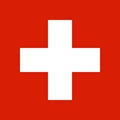President Furgler, I would like to extend to you and to the Swiss people my appreciation for helping to make possible the coming meetings between representatives of the United States and the Soviet Union. Nancy and I are delighted to be in this magnificent city on the shores of Lake Geneva. On behalf of the American people, thank you for your warm and friendly welcome.
Mr. President, it is fitting that the meetings of the next few days should take place on Swiss soft, for Switzerland has long been a leader in the search for peace and the defense of human freedom. Again and again, you've provided your territory for international meetings and your good offices in the mediation of disputes. It was the Swiss who founded one of the great humanitarian organizations of our time, the International Red Cross. And it is Switzerland that often represents the diplomatic interests of other nations, including the United
States, in lands where these nations have no formal diplomatic relations of their own. Indeed, in your unshakable commitment to independence, democratic government, and human rights, the Swiss Confederation in itself serves as an example to all the world.
The motto on the Great Seal of the United States, Mr. President, is "E Pluribus Unum"—Out of many, one. Well, here in Switzerland, a country of rich religious, cultural, and linguistic variety, you practice just such unity in diversity. Permit me to add that our two countries are bound together by family ties. As early as 1562 a Swiss citizen appeared in Florida, and in 1670 a Swiss settlement was established near Charleston, South Carolina. Ever since, Americans of Swiss descent have pioneered and led the development of our nation. Today Swiss Americans number in the hundreds of thousands, and I would be remiss if I failed to express their affection for you, their Swiss cousins. Indeed, just last month the good will of the American people toward the Swiss was formally expressed in a joint resolution of the Congress of the United States.
And recently, Mr. President, Boston University awarded you an honorary doctorate of laws. In your acceptance address, you stressed the obligations incumbent upon the West to defend its values and its way of life. "It is," you said, "part of the definition and vocation of the human being to be free." Well, Mr. President, each in its own way, our two nations stand at the forefront of this struggle for liberty; each stands determined to defend the freedoms of its own people and to advance the cause of freedom throughout the world; and each rests confident in the knowledge that freedom will endure and prevail.
It is to make certain that this great work on behalf of human freedom can go forward in peace that I have come here today. As I stated last month before the United Nations, I'm convinced that American-Soviet relations need a fresh start—a genuine give-and-take on regional conflicts, on human rights, and on the reduction of arms. American and Soviet differences on these matters run deep. Mr. Gorbachev and I cannot surmount them in only 2 days, but I'm here in the fervent hope that on behalf of all the people of the world, we can at least make a start.
President Furgler, once again, to you and the people of Switzerland, our friendship and our deepest gratitude.
Note: The President spoke at 10:36 p.m. at Cointrin Airport. He was greeted by President Kurt Furgler of Switzerland.
Ronald Reagan, Remarks on Arrival in Geneva, Switzerland Online by Gerhard Peters and John T. Woolley, The American Presidency Project https://www.presidency.ucsb.edu/node/258986


